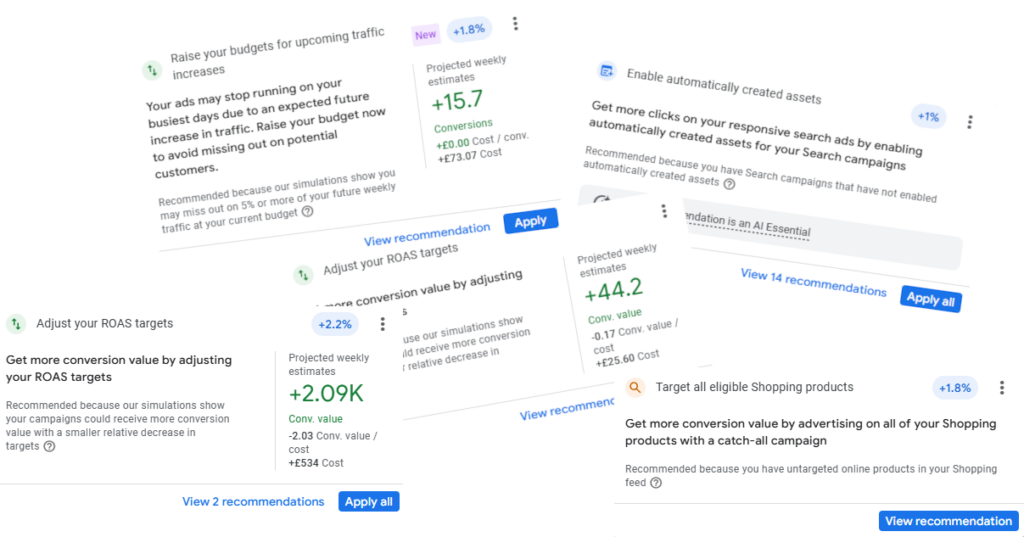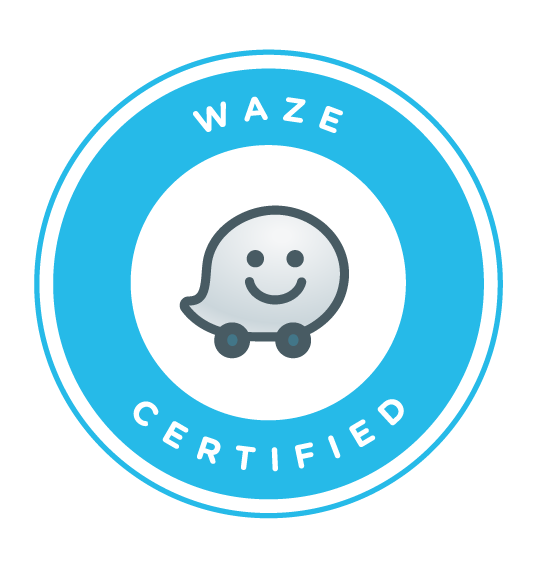
The Hidden Bias in Google’s Recommendations
Google’s parent company, Alphabet, will report its fourth-quarter 2024 earnings on Tuesday, February 4th, 2025.
In the third quarter of 2024, Alphabet reported $65.9 billion in ad revenue —a 10.6% increase from the previous year. This was part of a total revenue of $88.27 billion, marking a 15% year-over-year growth.
With figures like these, it’s clear that Google Ads remains a highly profitable business. But this raises an important question for advertisers:
Are Google’s recommendations truly designed to optimise your campaigns, or are they primarily structured to maximise Google’s revenue?
Google’s automated recommendations are not as neutral as they appear. While they claim to optimise campaigns, their suggestions almost always encourage advertisers to increase spending.
For instance, many advertisers frequently receive recommendations to raise budgets yet rarely see suggestions to reduce them. If Google’s AI were genuinely focused on advertiser success, it would provide balanced insights—suggesting budget increases when performance is strong and reductions when efficiency declines.
This raises an important question: Are Google’s recommendations designed to improve advertiser performance, or are they primarily geared towards maximising Google’s revenue?
The One-Way Push Towards Automated Bidding
A closer analysis of Google Ads’ API-level specifications reveals a clear pattern:
- If you’re using manual bidding, Google often recommends switching to Target CPA (tCPA) or Target ROAS (tROAS).
- However, once you’ve switched to automated bidding, you will not receive recommendations to revert to manual bidding, even if performance deteriorates.
- Additionally, if you’re on tCPA, Google won’t suggest switching to tROAS, even though tROAS with value-based bidding often yields better results.
This demonstrates that Google’s automation isn’t always about optimising performance—it’s about steering advertisers towards settings that grant Google more control over ad spend.
AI Recommendations: Are They Optimising for You?

Google’s AI-powered recommendations can be helpful, but they are not always aligned with an advertiser’s best interests.
Take the “Optimise Budget Allocation” recommendation as an example:
- Google may suggest shifting the budget from one campaign to another because “it has higher conversion potential.”
- However, Google does not account for business priorities, lead quality, or actual profit margins—it simply aims to maximise conversions at any cost.
This is similar to Google’s AI-driven ad creation, which prioritises engagement metrics (clicks, impressions) over real business results such as high-quality leads or profitable sales.
Advertisers must apply their own judgment rather than blindly following Google’s automated suggestions.
The Dark Patterns in Google’s Automation Push
Another key concern is Google’s use of “dark patterns,” subtle tactics designed to entice advertisers to spend more.
For example:
- Google aggressively promotes Performance Max (PMax) as the “future of automation,” yet early versions lacked critical advertiser controls (e.g., negative keywords, audience exclusions).
- PMax was rolled out before it was fully optimised, leading to wasted spend and frustration for many advertisers.
- Google’s Recommendations Tab heavily encourages migration to automated bidding, even for accounts that perform well with manual control.
Over time, Google removes manual options, making automation the only viable choice—but not necessarily the best choice.
Why Advertisers Must Take Back Control
With generative AI and automation dominating Google Ads, it is more crucial than ever for advertisers and agencies to:
- Scrutinise Google’s recommendations before implementing them.
- Use third-party analytics and optimisation tools to validate decisions.
- Maintain manual oversight on campaigns, even when using automation.
- Explore alternative advertising platforms (Microsoft Ads, Reddit, Spotify, etc.) to diversify traffic sources.
Final Thoughts: Google’s Recommendations Are Not the Final Word
Google Ads remains a powerful tool, but its recommendations should be treated as suggestions—not directives. While automation can save time, blindly following Google’s advice can lead to higher costs, wasted spend, and reduced control.
Advertisers who remain critical, strategic, and data-driven will outperform those who accept recommendations at face value.
Is your PPC strategy too reliant on Google’s automation?
Contact us for an expert audit and regain control over your ad spend.
Call now on 01603 343477.




